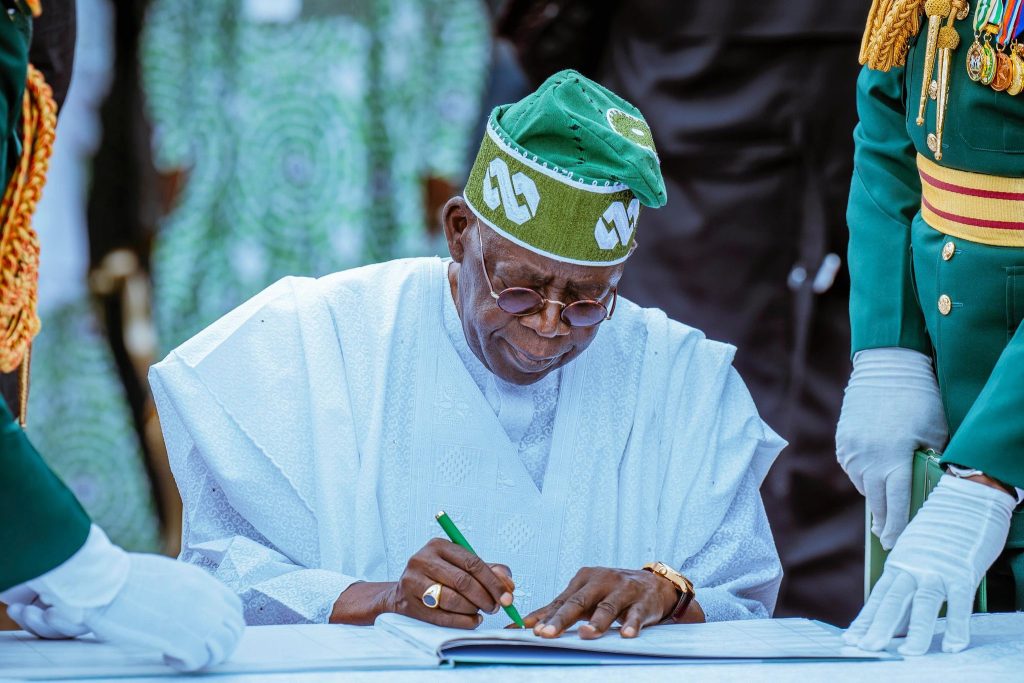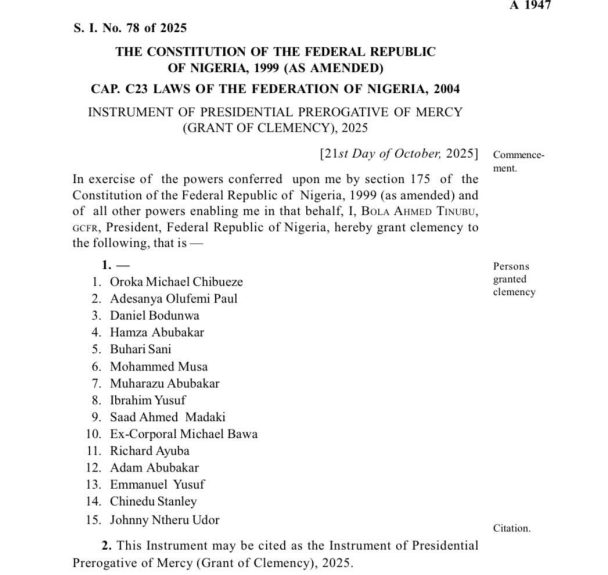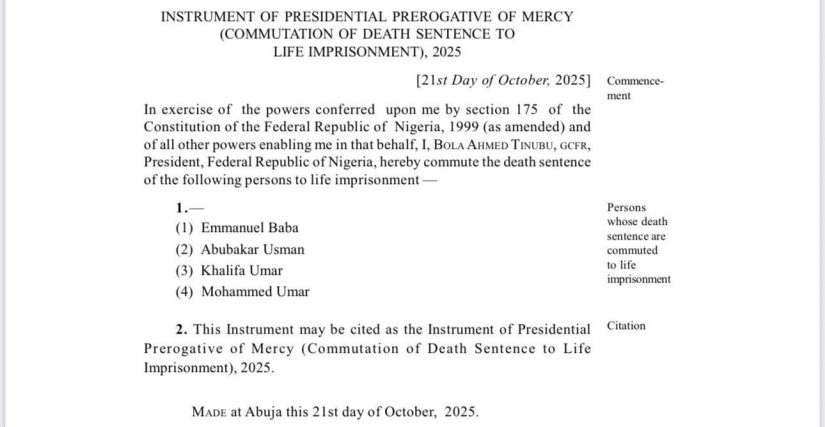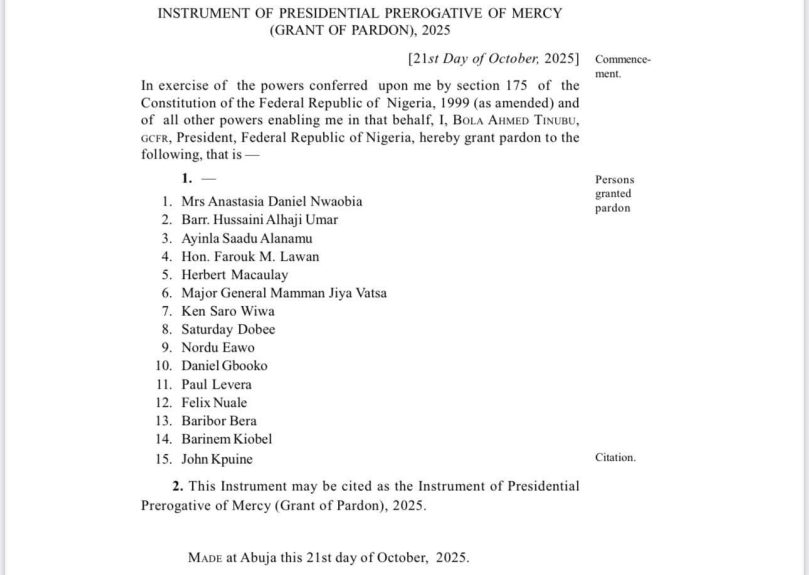
Pius Nsabe
President Bola Ahmed Tinubu has signed instruments of clemency granting presidential pardon to selected individuals, while excluding those convicted of serious crimes such as kidnapping, drug trafficking, human trafficking, fraud, and unlawful possession of firearms.
The President, exercising his constitutional powers under Section 175(1) and (2) of the 1999 Constitution (as amended), acted after consultations with the Council of State and a comprehensive review of public opinion on the matter.
According to a statement by the Special Adviser to the President on Information and Strategy, Mr. Bayo Onanuga, the review led to the deletion of names of persons like Maryam Sanda convicted for grave offences from the initial list earlier presented for approval. Some others who had been previously pardoned had their sentences commuted instead.

The Presidency said the decision reflects the administration’s sensitivity to the plight of crime victims, the need to uphold justice, and the imperative of maintaining national security. “The concept of justice as a three-way traffic for the accused, the victim, and the state guided the review,” the statement read.
President Tinubu explained that the move aims to balance compassion with accountability and to reinforce the morale of law enforcement agencies across the country.
In a related directive, the President ordered the immediate relocation of the Secretariat of the Presidential Advisory Committee on the Prerogative of Mercy from the Federal Ministry of Special Duties to the Federal Ministry of Justice. The Attorney-General of the Federation has also been instructed to develop new guidelines for the exercise of presidential mercy, mandating consultation with relevant prosecuting agencies.

The revised list of eligible beneficiaries has been transmitted to the Nigerian Correctional Service for implementation in line with the signed instruments of release.
The statement added that the President appreciates the feedback from citizens and stakeholders, emphasizing his administration’s commitment to judicial reforms and the enhancement of justice administration in Nigeria.

“Only persons who fully meet the stipulated legal and procedural requirements will henceforth benefit from the issuance of instruments of release,” the President affirmed.
The clemency reform, analysts say, signals a tightening of Nigeria’s pardon process — long criticized for political bias and leniency towards high-profile offenders — and a broader shift towards transparency and public accountability in the justice system.
